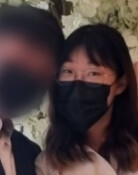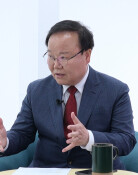Distrust of tap water high, despite similar preferences in blind taste test
Distrust of tap water high, despite similar preferences in blind taste test
Posted December. 23, 2014 06:34,
A housewife in Yongin City, Gyeonggi Province drinks bottled water. She also uses bottled water when cooking. Tap water is used for dish washing and laundry. This is not because tap water has problems. She just feels safer with bottled water. Due to social atmosphere in Korea to refrain from drinking tap water straight, tap water drinking rate stands at just 5 percent, sharply below that of the U.K. (70 percent), the U.S. (56 percent) and Japan (46 percent).
Tap Water Civic Network was launched to raise tap water drinking rate. Founded in September joined by 71 groups including the Korean Federation for Environmental Movement, Green Consumer Network and Korea Environment Corporation, the network recently held its first national civic discussion session at the Federation of Korean Industries as its effort for a full-out activity. The event was aimed to accurately inform the public of tap water quality via discussions and campaign in order to resolve distrust in tap water.
In 2012, the Tap Water Promotion Council asked 12,000 people aged 20 and over why they don`t use tap water for drinking. The biggest reason was "due to vague anxiety" at 31.9 percent respondent rate. On why they buy bottled water for drinking, the direct distrust rate of tap water was not high. People said they were buying bottled water because "famous domestic and foreign brands produce it (32.5 percent)," "it is a daily necessity (9.8 percent)," "it seems to be better since it`s expensive than tap water (11.7 percent)," and "because people drink it (9.8 percent)." Only 4 percent said, "Because I can`t trust tap water."
The civic network found that people`s fear over tap water comes from lack of information of tap water quality, and decided to aggressively promote tap water quality. According to the network, Korea`s tap water quality checklist has 250 items, bigger than the U.S. with 110 items and Japan 125 items. Thanks to such strict water quality checkup, Korea received the highest five-star grade in filtration operational capability test carried out in 2009 by the American Water Works Association. At the world water quality competition in 2012, Korea ranked seventh, the highest standing ever among Asian countries.
Kim Sun-bok, secretary general for the Korean Women`s Federation for Consumer, said, "We have conducted a blind taste test among tap water, bottled water and water purifier, and all three showed similar preferences when asked to choose one," adding, "We will provide sufficient information to do away with a stigma of distrust in tap water."
Headline News
- Med professors announce intention to leave hospitals starting Thursday
- Bridge honoring Sgt. Moon Jae-sik unveiled in Pennsylvania
- Chief of Staff Chung tells presidential secretaries to stay away from politics
- US FTC bans noncompete agreements
- N. Korea launches cyberattacks on S. Korea's defense companies







